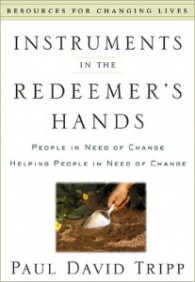Do you know the people you know?

We all have friends that we don’t know. And we are all friends to others who don’t know us. These relationships are casual, rather than intimate—thin, rather than thick. Perhaps, it’s better to talk of acquaintances instead of friends.
Much of contemporary culture militates against “thick” relationships. The “most personal and important parts of our lives fly under the radar of our typical relationships in the body of Christ,” we’re told by psychologist Paul David Tripp.
We tend to have permanently casual relationships that never grow into real intimacy. There are things that we know about each other, but they fool us into thinking that we know the human beings who live within the borders of those details. So we fail to pursue them with good questions. This sets the stage for all kinds of misunderstandings. Our effectiveness as ambassadors is blunted because we don’t know where change is needed or where God is actively at work.
Conversely, others don’t know us and are also unable to see where change is needed in our lives. It’s so easy to use casual conversation to hide who we really are. In fact, we can become co-conspirators in maintaining casual relationships.
A person may be terribly distraught about her marriage, yet when people ask how she is, she will quickly answer, “Fine, how are you?” The person asking doesn’t really want to know and the person answering doesn’t really want to tell. They are co-conspirators in a casual relationship. Whether it is over the back of a pew, in passing at a school function, or over the phone, we are skilled at newsy but personally protective conversations.
This is the first reason that Tripp gives for casual relationships—not wanting to know, not wanting to tell. He goes on to list several other reasons.
· In our busyness, “we despair of squeezing ten dollar conversations into ten cent moments.”
· “We all deal with the disconnect between our public reputation and our private struggles. We wonder what people would think if they really knew us.”
· We buy “into the lie that we are unique and struggle in ways that no one else does. We forget that everyone is fraught with disappointment and difficulty, suffering and struggle, trials and temptations.”
· We are reluctant to “admit our weaknesses to ourselves, let alone to others. We don’t want to face what our struggles reveal about the true condition of our hearts.”
· “We all find the searching light of true friendship a bit intimidating. True friendship calls you out of the darkness of personal privacy into the loving candor of mutual concern. It moves you from being a sealed envelope to being an open letter.”
· We have great trouble seeing ourselves. “Because we tend to believe our own arguments and buy into our own excuses, we are often unaware of how great our need of help really is.”
· “Perhaps the simplest reason for our lack of self-disclosing candor is that no one asks. The typical rhythms of our lives mitigate against going below the surface.”
Tripp concludes with a caution against becoming “comfortable with the casual.”
The genius of personal ministry is that it is personal. … Personal ministry is not preaching to a very small congregation. It is the careful ministry of Christ and his Word to the struggles of heart that have been uncovered by good questions from a committed friend. This means that effective, God-honoring, heart-changing personal ministry is dependent on a rich base of personal information. You cannot minister well to someone you do not know.
Conversely, we can’t be ministered to unless we are known.
These quotes are from “Getting to Know People,” Chapter 9, in Paul David Tripp’s Instruments in the Redeemer’s Hands: People in Need of Change Helping People in Need of Change.


 October 1, 2012
October 1, 2012 







Comments are closed.